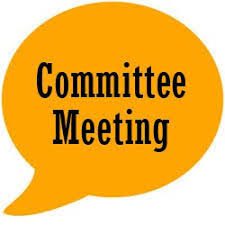Why Breaking Up Committees And Commissions Is Important

“A journey of a thousand miles begins with a single step.”
—Lao Tzu

For the most part, nobody noticed the change. Ventura voters paid little attention to the City Council’s revamped process for committees and commissions. That’s too bad because the new process is the first step towards improving the city.
Voters elected a new City Council in 2018 seeking bold changes in the way Ventura operates. The Council designed initiatives to save city staff time and money. Because of the revamped process, Ventura will become more business-friendly. Moreover, the new procedures will make it easier for residents to improve their homes.
Unlike in the past, the Council recognizes that the development process is cumbersome. There are too many planning and review layers to navigate and not enough certainty. Mayor Matt LaVere called the system sick and in bad need of surgery. The Council is breaking down decades of ineffective planning, permit processing and internal red tape.
Proposed Changes To Committees And Commissions
 The Council has proposed some significant changes. They include:
The Council has proposed some significant changes. They include:
- Streamlining, improving and simplifying the current design review process.
- Disbanding the Historical Preservation Committee. Replacing it with staff review and, where needed, outside consultants.
- Allowing each council member to appoint her or his own Planning Commission member. The commissioner’s term would run concurrently with that of the elected official.
- Merging the Cultural Affairs, Library Advisory and Public Arts commissions. Three members of each commission stay on to form a nine-member board.
The Most Notable Change
The most significant change is the appointment of Planning Commissioners.
In the past, the City Council Appointments Committee interviewed Planning Commissioners. The Appointments Committee comprised of three Councilmembers. If approved, the committee recommended the prospect to the full City Council. When approved, each appointee was sworn in to serve for four to eight years, or longer.
Under the proposed changes, each City Councilmember will appoint a Planning Commission member. Commissioner terms would run concurrently with that of the elected official. The appointing Councilmember may replace them at any time during their tenure.
Increased Accountability For Committees And Commissions
 Every Planning Commissioner would be accountable to the Councilmember who appointed him or her.
Every Planning Commissioner would be accountable to the Councilmember who appointed him or her.
Currently, the commissioners are unelected and unanswerable layers in the process. Some viewed their role as gatekeepers or an all-important citizens’ overseers. Rarely, if ever, was an appointed commissioner removed by the City Council. Entrenched commissioners support their boards but do not answer to anyone and suffer no consequence if their agenda is different from that of the City Council.
Under the new structure, each commissioner would be responsible to an individual City Councilmember whom we elected. It is less likely they will obstruct progress.
Increased Efficiency
The proposed system eliminates duplicated efforts. It also saves the city staff time in unproductive meetings.
City staff will assume the responsibility of the Historical Preservation Committee. Combining the Cultural Affairs, Library Advisory and Public Arts Commissions reduces three meetings down to one.
City staff spends time preparing, attending and summarizing the findings for these meetings. They will no longer need to do so under the proposed changes.
Cost Neutral
The new system offers less duplicated effort, fewer meetings and allows the staff to do more work. City staff will spend less time in meetings. They will save the time they’d otherwise spend preparing for, attending and summarizing the meetings.
It costs the city more to have staff acting as the Historical Preservation Committee. The increase in personnel cost is offset by the cost savings from eliminated meetings, in any case.
Feeble Objections
 The proposed changes don’t please everyone. The immediate resistance came from some existing committee members and commissioners. There are two main objections. Some complained about the process. Others believe there will be less transparency and citizen involvement.
The proposed changes don’t please everyone. The immediate resistance came from some existing committee members and commissioners. There are two main objections. Some complained about the process. Others believe there will be less transparency and citizen involvement.
Those annoyed by the process claim the city should have notified members in advance about the change. They assert that the staff did not inform the commissions or seek input until after the fact.
Committee members and commissioners serve at the pleasure of the City Council. It’s unimportant if the Council or city staff notified them in advance of proposing any changes.
Others feel the new process will reduce the number of voices participating. The criticism is unfounded. All the committee and commission meetings are open to the public. Any interested citizen can attend and take part. That includes all ex-committee or ex-commission members.
Editors’ Comments
The City Council acknowledged Ventura could improve. They’re taking steps to change that; starting first with the committees and commissions. No one knows what impact these changes will have. What we do know is that doing the same thing and expecting different results will not work.
Supporting these recommendations may move Ventura forward. We applaud the Council’s effort to infuse more responsibility into city government. The new initiatives will improve transparency.
WRITE THE CITY COUNCIL TO SHARE YOUR OPINION ON THE CHANGES TO COMMITTEES AND COMMISSIONS
Below you’ll find the photos of our current City Council. Click on any Councilmember’s photo and you’ll open your email program ready to write directly to that Councilmember.
 |
 |
|
 |
 |
|
 |
 |
|
 |
For more information like this, subscribe to our newsletter, Res Publica. Click here to enter your name and email address.

